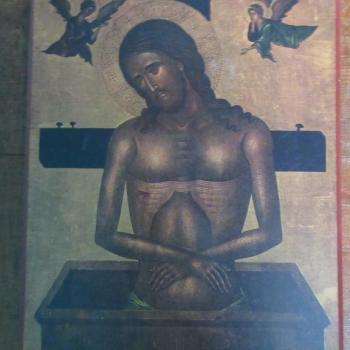Do you attend a parish or a church? Or, do some of you attend one of those “Catholic Communities” that keep cropping up? 🙂 I ask this question, because most people think a parish and a church are the same thing.
Canon Law defines a Church building as “a sacred building designated for divine worship to which the faithful have the right of entry for the exercise, especially the public exercise, of divine worship.” (Can. 1214) A parish is defined as “certain community of the Christian faithful stably constituted in a particular church, whose pastoral care is entrusted to a pastor (parochus) as its proper pastor (pastor) under the authority of the diocesan bishop.” (Can. 515§1; note: a “particular church” refers to a diocese are equivalent structure.) As for Catholic Community, I haven’t seen that definition under Canon Law, at least as part of the ecclesial structure.
In dioceses across the country and in particular the East and Midwest, we have an odd parish structure. This in part is due to the fact that a parish can be erected for non-territorial causes. In many areas we had parishes erected to serve German, Polish, and other immigrants. Needless to say in many parts of the country, these parishes no longer serve their purposes. This has been a problem that has been avoided, but due to the priest shortage work has begun on rectifying the situation. Given the abuse settlements, it is manifest that legally structuring the parishes as they are presently configured isn’t offering any protection so if that was an impediment, it is no longer applicable.
I am of the opinion that a more radical reordering of the parishes should occur in dioceses. There are several reasons for this that I will touch upon.
1) Summorum Pontificum is being widely misinterpreted by well meaning folks. In many quarters it is being interpreted as the lay faithful having the right to form a congregation and petition a priest to offer the extraordinary rite. A web site has been fairly widely advertised offering people an opportunity to find other people in their area who are interested in having the extraordinary rite. Summorum Pontificum does not give a priest the right to erect a parish for a people. The right is exclusively reserved to the bishop, and people are more than free to request their bishop offer the extraordinary right as was allowed prior to Summorum Pontificum. I will also stress that there is no impediment upon a pastor authorizing the extraordinary right within his parish. What I am specifically cautioning against is that simply because one has found 50 or 100 people, as opposed to 50 or 100 parishioners, interested in the extraordinary rite, does not mean a pastor is compelled to offer the extraordinary rite. I will also add that no one is compelled to do anything. Having a right simply requires a denial to be offered for cause of which several are offered in Summorum Pontificum.
2) The decision on offering fewer or more masses within a given area is a parochial concern. Given sparse settlement patterns and the inherent flux of Catholics within a given area, one could understand how the number of masses offered in a particular area would need to fluctuate. Presently we have a situation where one cannot find a true high mass in many dioceses. This is truly tragic when cathedrals are not offering high masses. Some of this has to do with the disparity of personnel. Regardless, the cathedral and parish churches (seat of a parish) should work towards having the resources to provide a high mass on Sunday. Additionally, parish churches should have the Sacrament of Confession widely available, as in daily for several hours a day. Such things as First Fridays could be offered at the parish church. An ordinary parochial church would be excused from such matters or they could be provided as pastoral need justifies them. This would be an improvement upon the present situation where the low mass is always offered.
3) One of the obligations of the bishop is to ensure that the masses offered in his diocese are consistent and conform with the rubrics. Of course all priests are obligated to celebrate the mass by the rubrics. The nature of the office of pastor, it is perpetual with retirement offered at 75 years of ago like a bishop, does not lend itself to crack downs. Every priest was not intended to be a pastor. If we could bring the ratio of priests to pastors to 10:1 or 15:1, we would allow actual governance in dioceses. Being a pastor wouldn’t be an office that everyone has; it would be a position offered to a priest after a long period of discernment by the Bishop, as it’s intended to be. More importantly, we would go a long way toward eliminating situations where we have a St. Agnes and a St Joan of Arc being made up of congregations largely unrepresentative of the parishes they occupy. While I do support the evangelization done at St. Agnes, there is no doubt that they as well as St. Joan of Arc contribute to a congregationalist mentality that is quite pervasive in this country. I’m not looking for oases in dioceses unless they are shrines or otherwise established by the bishop. If every parish resembled Saint Agnes, I would be more than thrilled. We need to however get back to a Catholic Ecclesiology.
















